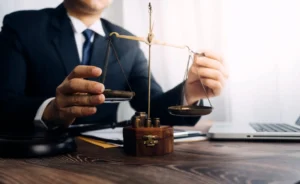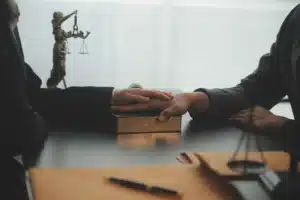How To Stop Bill Collectors - The Dos And Don'ts
Perhaps it’s happened to you: you’re in a financial jam and bills are starting to pile up, or your paycheck just isn’t enough. Suddenly, you fall behind on your credit payments and are in debt. What can happen when you owe money but are not in a position to pay? Can you be sued? Can you end up in jail? What about those annoying and never-ending calls from the debt collectors—how do you deal with them, and can you stop them?
Calls from debt collectors can be nerve-wracking. In some cases, debt collectors can use tactics that are predatory or even violate the law. If you are getting emails, calls, or texts from a debt collector, going into the process blindly can give the collection agency the upper hand.

Instead, educate yourself about your rights and the dos and don’ts regarding handling the collection agency’s calls without making mistakes that put you at financial or legal risk. Below are the dos and don’t of how to stop bill collectors.
What To Do When Debt Collectors Call
Decide Whether You Want To Talk
The debt collection process can be painful and intimidating, but it only worsens if you decide to act like it isn’t happening. Hanging up on collectors or ignoring them won’t make them go away. But before you pick up a collector’s call, you need to understand your rights, figure out if you really owe the money, and find out whether the statute of limitation has expired.
Tell The Collector You Are Not In A Position To Pay (If You Can’t)
A debt collector doesn’t have to stop their collection activities just because you admit that you can’t pay. But telling the collectors that you’re in no position to pay the debt and giving them a brief explanation of your financial troubles might steer them in the direction of other customers. It might also stop them from referring your file to litigation.
Tell The Debt Collector If You Believe You Don’t Owe The Debt
If you believe the debt collector is calling the wrong number or the debt is not legit, or the date is old, you should tell the collector why. It’s not uncommon for collectors to use old information or even contact you when they know that the debt is uncollectible. If you act fast, you can ask the debt collector (in writing) to validate the debt, and they must stop collection activities while processing this information.
Write A Cease And Desist Letter To A Debt Collector
Debt collectors are not allowed to intimidate, harass, abuse, intimidate or use other underhanded tactics to try to collect their money, according to the FDCPA (Fair Debt Collection Practices Act). They are also not allowed to call you at work or at a time that’s inconvenient to you. So, if a collector is calling you at work, before 8 a.m. or after 9 p.m. in your time zone, lies about what you owe, or even if the debt is yours, you are legally allowed to ask them to stop calling you. You can stop collectors from calling or contacting you by writing a cease and desist letter with a formal request to stop contacting you. Remember to keep a copy, plus their reply for yourself.
Keep A Record
Always get everything in writing or record phone conversations when debt collectors contact you. If collectors send you texts, keep the messages. A record will help you straighten out what the collector is about and how often they call you. It can also help document inconsistencies in what the debt collectors say to you from one cell to the next. These records can be crucial in protecting your rights and valuable if you decide to take legal action against the collector or try to settle the debt.
What Not To Do When Debt Collectors Call
Don’t Give Too Much Information About Your Personal Financial Information
Any information you give to a debt collector can be used to help them collect the debt. You should never provide too much information about your personal financial position. For example, don’t give your bank account information or pay with a check.
Don’t Lose Your Temper
Screaming, using profanity, or getting hostile won’t help with your situation. If call or text records are needed during litigation, it will hurt you if you’re the one using abusive language and not the debt collector.
Don’t Make A “Good Faith” Payment Or Promises
Even when you’re 100% sure you owe them money, don’t give promises or make a “good faith” payment. Your acknowledgement of the debt might revive old obligations (and the statutes of limitations) since any promise or payment you make can be interpreted as a separate contract.
Want A Sure Way To Learn How To Stop Bill Collectors? Talk To A Lawyer
If you’re having problems with debt collectors or need help responding to a lawsuit for nonpayment of a debt, consider talking to a lawyer. At W. Ron Adams Law, we can help you stop calls from aggressive debt collectors and find a permanent solution to eliminate your debt issues. Let our experienced, dedicated, and compassionate team evaluate your situation! Call us right away to book a free no-obligation consultation at (859) 788-0140.






